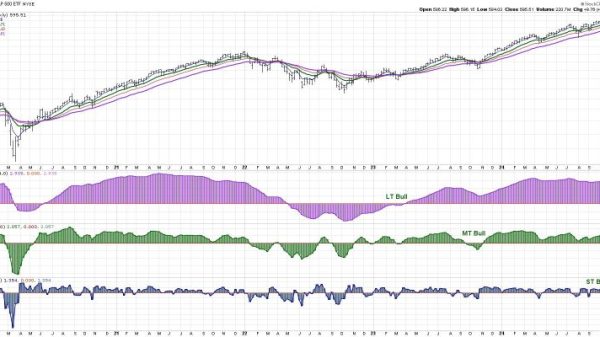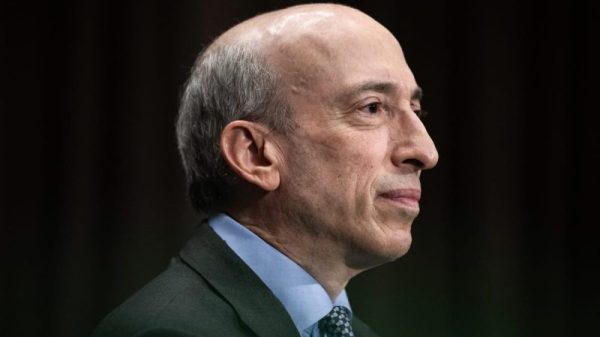HUNTSVILLE, Ala. — At the Redstone Arsenal in Alabama, a major hub of the U.S. military’s space and missile programs, a key officer is supposed to be leaving his post for a critical new job leading the agency responsible for America’s missile defense.
But now Maj. Gen. Heath Collins’s promotion is on hold — creating disruptions up and down the chain of command.
His absence means that a rear admiral normally stationed at Redstone overseeing missile testing is instead temporarily filling in as acting director of the Missile Defense Agency. Meanwhile, the brigadier general tapped to replace Collins is also stuck, forced to extend his assignment at Space Systems Command in Los Angeles rather than starting work in Huntsville.
Collins’s elevation is one of 301 military promotions for jobs around the world currently blocked by the state’s U.S. senator, Tommy Tuberville (R), who since February has been using his power to single-handedly place “holds” on all Pentagon appointments that require Senate confirmation. Tuberville’s goal, he says, is to force the military to end its policy of paying for service personnel and family stationed in states with abortion bans to travel to states where the procedure is legal if they need care.
The ripple effect up and down the chain of command from the delayed promotion of one senior leader at one installation offers a vivid illustration of what critics say is the deepening fallout from Tuberville’s gambit to use his Senate “hold” power to wage a culture-war campaign over abortion policy.
It has undermined the military’s long-term planning, several officials and retired generals or other veterans living near the arsenal contend, derailed the training of future leaders in highly specialized fields and disrupted the lives of military families — all of which stands to worsen the Pentagon’s personnel retention struggles, his opponents claim.
If Tuberville does not budge, the number of positions blocked from Senate confirmation is set to rise to 650 by the end of the year, according to the Defense Department — a majority of the military’s 852 flag and general officer positions.
Tuberville, who declined to comment, has said the Defense Department’s policy violates a federal ban on funding for abortions and that he does not believe the holds are affecting military readiness.
“I hate to have to do this. But they’re going to listen,” Tuberville, a former college football coach, told the Catholic News Agency last month. “I’m not changing my mind.”
About the impacts at Redstone, Tuberville spokesman Steven Stafford said in an email: “No one has been a stronger advocate for Huntsville than Coach.”
Collins is one of four senior leaders either currently stationed at Redstone Arsenal or scheduled to transfer to the Alabama base whose Senate confirmations have been held up by Tuberville’s hold. The Washington Post has identified at least six more service members who have had to temporarily change or extend roles, or whose career progression has been frozen, because of those four Redstone holds.
Tuberville’s hold is “unprecedented,” Secretary of the Army Christine Wormuth said in an interview, adding that it is playing out in “unexpected and unhelpful ways.”
Other senators have previously blocked military promotions but an official said none before had lasted this long.
Sabrina Singh, deputy Pentagon press secretary, said that the military needs “tested leaders who are fully empowered to make tough decisions” and that the hold “undermines our military readiness.”
The Senate must approve the appointments of the most senior military leaders. Generally, votes are held on large numbers of promotions in batches, which under Senate rules requires that each group receive the unanimous consent of the chamber, allowing any one senator to hold up the process. The Senate majority leader could get around Tuberville’s hold by bringing the nominations to the floor one-by-one but doing so could require devoting two to three days for each vote and prevent the Senate from conducting other business. Such a process would take months, Democrats say.
Despite the local impacts, Tuberville faces little political pressure to withdraw the holds at home in Alabama, where Republicans are widely supportive of his antiabortion stance. Earlier this month, the state Republican Party’s Executive Committee voted 99 to 1 to adopt a resolution supporting his position.
“Tuberville is not just standing for a pro-life principle. He’s also defending taxpayers who are having their money misused,” said John Wahl, chairman of the Alabama Republican Party.
Redstone Arsenal, named after northern Alabama’s red soil, was established in 1941 as a war chemicals plant with an ordnance facility next door. After World War II, the Army found itself in need of land for developing for a new kind of military system, rockets, and brought to Huntsville a team of German scientists led by Wernher von Braun. In Huntsville, he went on to develop the rocket that launched Apollo 11 to the moon.
Today, the 60-square-mile base is home to the Army’s Space and Missile Defense Command, much of the workforce of the Missile Defense Agency, as well as NASA’s Marshall Space Flight Center and several other air- and space-focused military organizations and contractors.
The base is dotted with historic rockets, including von Braun’s V2 and a Saturn 1B, one of the family of Apollo launch vehicles. It is still an active test site for rockets engines, javelins and explosives.
According to the Arsenal’s public affairs office, 45,000 civilians including contractors work on the base every day, as well as 800 military personnel, including a number of higher ranking officers responsible for directing operations.
One of those leaders is Collins, who from Redstone currently oversees the Missile Defense Agency’s ground-based interceptors in Alaska and California, positioned to counter potential threats from North Korea and Iran. He was nominated to assume command of the whole agency in May.
With an annual budget of around $11 billion, the agency is responsible for developing, testing and procuring the country’s defenses against ballistic missiles. The agency has not gone without a Senate-confirmed director since its creation in 2002, said Singh, the Pentagon deputy press secretary.
Without a full three-star general at the top — as Collins will be after his promotion — the agency’s credibility in military planning and ability to set long-term strategy will suffer, Wormuth said. The rear admiral acting as director was only recently promoted to one-star.
“Rank matters,” she said.
A spokesperson for the agency said Collins was not available to comment.
Another Redstone leader awaiting senate confirmation is Col. David Philips, who is scheduled to become a top Army aviation officer, responsible for developing new airborne vehicles, such as helicopters, and supporting existing ones. His job too is being filled on an acting basis.
Vincent Boles, a retired major general who now coaches contractors at Redstone Arsenal, suggested that having an acting leader would hamper the office from plotting a new long-term vision. He said he had performed military roles on an acting basis during his career and would always question for “how long.”
“Am I going to make massive strategic decisions that make a significant impact over the next 20 to 30 years?” he said. “Or do I just want to keep the trains running on time?”
Another Redstone organization impacted by the holds is the Army’s Space and Missile Defense Command, responsible for the soldiers who defend the United States against potential intercontinental ballistic missile attacks.
Army Maj. Gen. Sean Gainey was nominated in January to take over the command but with his promotion on hold, Lt. Gen. Daniel Karbler has postponed a planned retirement to remain in charge.
“I’m going to continue to serve, continue to give it my all and set a good example for everybody to follow,” said Karbler, who did not otherwise comment on his predicament.
In the Redstone world of space and missile defense, leaders have received highly technical training and only two or three are groomed for top roles — meaning there are fewer with proper qualifications to fill vacancies, said a Senate Committee on Armed Services staffer.
To get such an officer ready for top roles, Wormuth said their career path is plotted “years in advance.”
“It has ripple effects all the way down the line, especially on mid-grade officers such as colonels,” said a senior leader of the Space and Missile Defense Command who spoke on the condition of anonymity because they did not have permission to be quoted.
Sen. Jack Reed (D-R.I.), a retired Army officer and chairman of the Armed Services Committee, said younger officers may now fear missing out the chance to gain key experience. He added that some may question why they should stay if they are now “just a political pawn,” given many will have “no problems walking out of the military getting very significant jobs.”
In Huntsville, where military and space industries are key to the local economy, Tuberville’s stand has drawn much criticism — but also plenty of support.
Concern over the military hold issue has been compounded in recent days by a decision by President Biden to keep the headquarters of the U.S. Space Command in Colorado, rather than move it to Huntsville as President Donald Trump had announced shortly before leaving office. Some in town suspect the decision was intended to punish Tuberville, which administration officials have denied.
Jimmy Sam, an Army veteran who lives in Huntsville, said he thought Tuberville’s blocking of military-career progression would be unpalatable to personnel stationed in the state. “If you’re from Alabama, your own senator didn’t vote for you to get promoted,” he said.
But at the Alabama Republican Party’s summer dinner in Montgomery earlier this month, where Trump was the star speaker, many said they back Tuberville.
The senator should hold out for “as long as it takes,” said Edward Bridges, 69, a Huntsville resident in the audience, who said the military should not be doing “social stuff.”
Arthur Orr, an Alabama state senator whose district is near Redstone Arsenal, said Republican senators who do not hold the majority have “very few levers of power to use.”
“That’s what Senator Tuberville is using,” he said.
This week, Karbler addressed the annual the Space and Missile Defense Symposium in Huntsville, where fatigue-clad troops rubbed shoulders with defense contactors offering solutions such as “directed energy” technology that brings down weapons with lasers or microwaves.
But, as he opened his address, the officer putting off his retirement as head of the Space and Missile Defense Command because of politics wryly alluded to his circumstance.
“I’m truly excited to be with all of you here this morning,” he told the crowd, adding: “Still.”
Dan Lamothe in Washington contributed to this report.





























